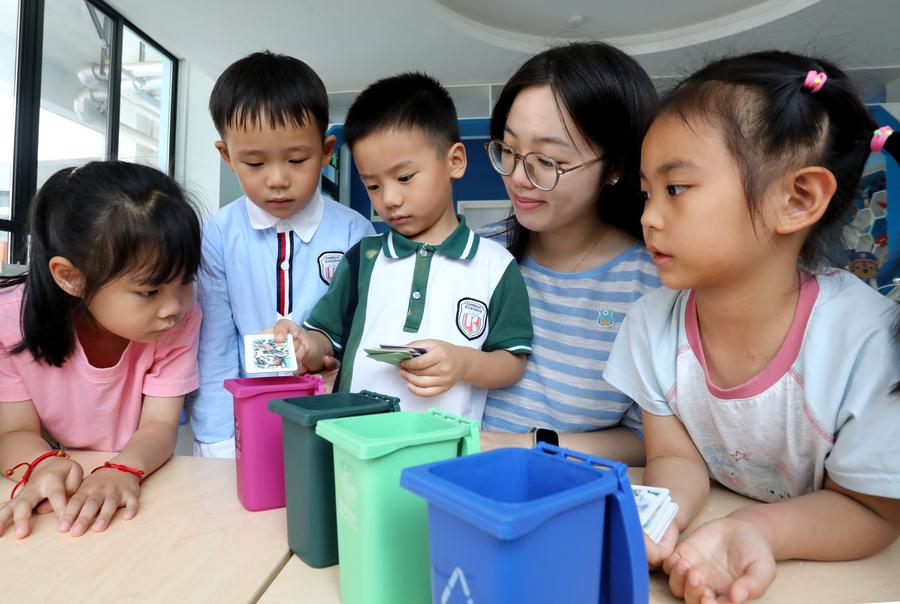
BEIJING - China is taking concrete steps to introduce free preschool education, as part of broader efforts to ease rising child care costs for young families amid mounting demographic challenges facing the country.
The move follows a commitment China made during its annual legislative session earlier this year to gradually implement free preschool education nationwide.
In its latest directive, which was issued on Friday, the central government has urged local governments to draw detailed implementation plans swiftly, and to allocate necessary subsidies.
ALSO READ: Xi, advisers focus on better education
It has also emphasized the need to expand preschool infrastructure, raise the salaries and welfare of kindergarten teachers, and improve support for children's physical and mental well-being.
The prospect of free preschool has drawn praise from parents. Ms Tan, a working mother in Beijing whose 3-year-old daughter is set to enter kindergarten this fall, described the policy as a timely "gift." If fully implemented, she said, it could save her family at least 9,000 yuan ($1,260) a year.
Kindergarten costs in China vary widely by region and type. In Beijing, public preschools typically charge less than 10,000 yuan a year, though competition for places can be fierce. Tuition at private kindergartens ranges from a few hundred to several thousand US dollars per month.
China currently provides nine years of compulsory education, covering primary and middle school. This system, which has been in place since 1986, ensures that all school-age children receive basic education. The ongoing push to make preschool education free is seen as a meaningful step to extend that guarantee to younger children.
READ MORE: China ranks 2nd in STEM education
"The policy would reduce the financial burden of child-rearing and education further, potentially encouraging more families to have children," said Song Jian, deputy director of the Population Development Studies Center at Renmin University of China.
Beyond easing the financial burden on families, education experts said the policy could help bridge disparities in early childhood education between urban and rural areas, and among children from different socioeconomic backgrounds.
"It gives every child a fairer start in life, laying a stronger foundation for future academic and personal development," said Gao Bingcheng, an associate researcher at the China National Academy of Educational Sciences.
READ MORE: China unveils blueprint for building strong education system by 2035
According to the latest data from China's Ministry of Education, there were 253,000 kindergartens nationwide in 2024, at which a total of 35.8 million children were enrolled.
While kindergarten typically begins at the age of 3 in China, authorities are now also turning their attention to infants and toddlers, who have traditionally been cared for at home.
As part of a broader effort to support families, the government is ramping up nursery care services for children under 3, aiming to relieve the pressures on working parents and improve early childhood development.
According to guidelines released in early July which focus on expanding affordable child care, China plans to offer 4.5 child care places per 1,000 people by the end of 2025, adding 660,000 new subsidized places.
For parents like Tan, the availability of affordable day care for children under 3 is a decisive factor in family planning. "It's a key consideration in whether or not I have a second child," she said.
Thanks to increased government investment, more subsidized nursery spaces and programs are now available, offering families like Tan's greater access and affordability.


